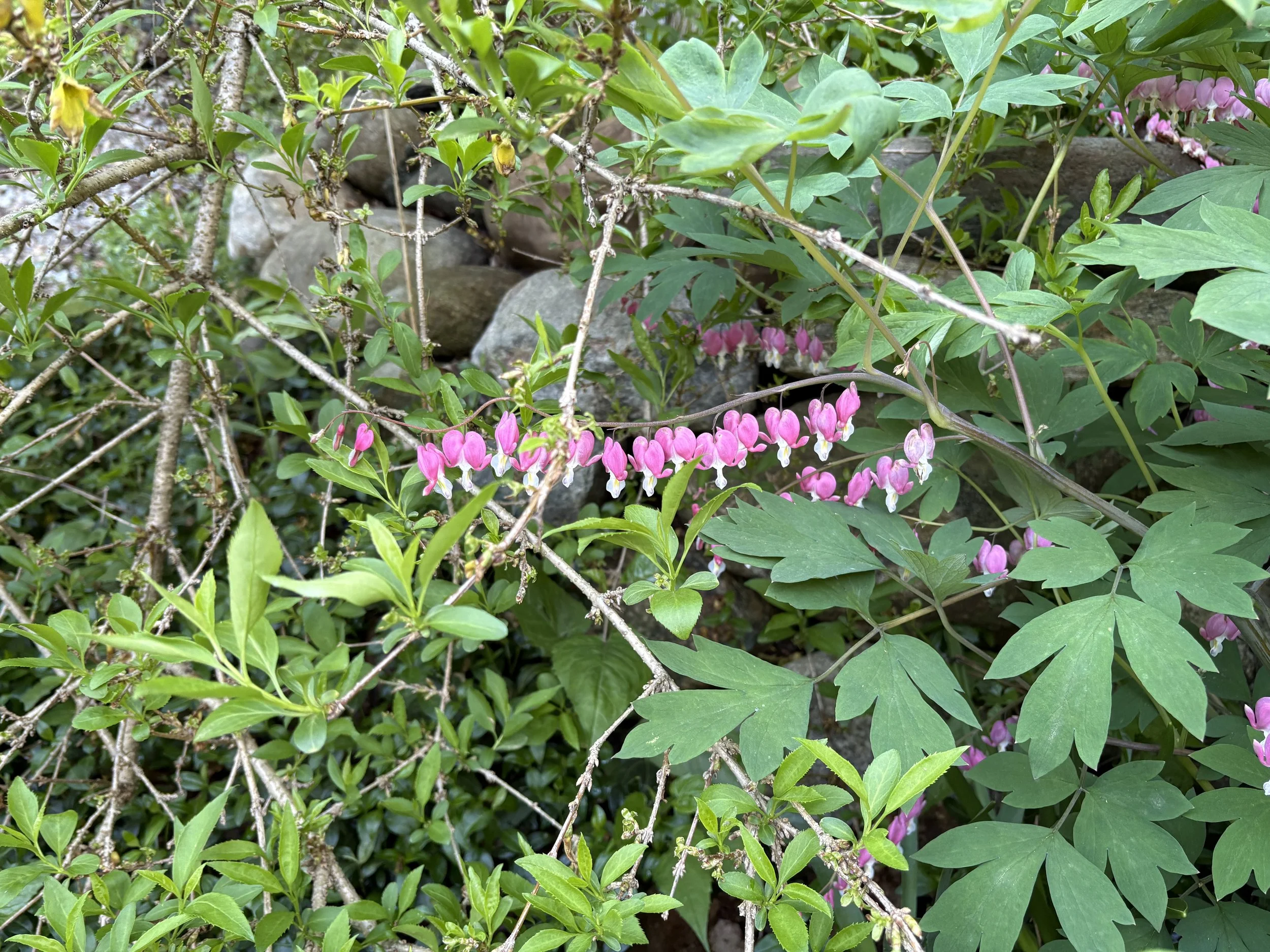What I Saw on My Walk: Tenderness
Vivd pink Bleeding Hearts amid lush greenery.
It has been a glorious day here in Vermont, after so very many days of rain. The sun alone would be enough to make this day feel spacious and good to me. On a sunny, breezy day in Spring, all things seem possible. On my walk yesterday after the skies cleared, I saw so many beautiful plants boldly leaning into the sun, including these sweet bleeding hearts.
Today is Mother’s Day, which in my adult life hasn’t been a very big deal. I have been lucky enough to love being a mother and being a daughter of a mother, but as a former restaurant owner and a pastor, it has always been a somewhat intense work day, so we never were in the habit of extravagant celebrations. This being my first year of having a Mother’s Day off, I’m not sure what to do with myself!
I know that Mothers Day can be a day of challenge and grief for many people for many reasons. As always on Mother’s Day, I am aware of the dissonance of living in a world that puts mothers on a pedestal for one day, in a society that does very little to honor the real, hard work of being a woman in the world the other 360+ days per year. I’m reminded, too, of the fact that the original impetus for the holiday wasn’t to shower Mom with gifts but rather for women themselves to rise up against the war machine.
I’m sure we’ve all read the original Mother’s Day of Peace proclamation written by Julia Ward Howe in 1870, in the midst of a world still very much bloodied by the recently concluded Civil War. (I’ll link to the full proclamation if you want to (re)familiarize yourself with it.) The gist, though, is this: Howe was calling all women to care for all people, and for that tender love of humanity to be deep and wide, flouting artificial boundaries that divide us. As I’ve been sitting with the proclamation these past few days, the most concise call that jumped out at me from her words was this: “We women of one country will be too tender of those of another country to allow our sons to be trained to injure theirs.”
In the Parable of the Good Samaritan, Jesus tells an expert in religious law that we must love our neighbors. In an attempt to wrap his mind around that commandment, the man asks Jesus, “Who is my neighbor?” Jesus’ answer makes it very clear: neighbor isn’t a term of geography, it’s a term of relationship. It’s like that with tenderness, according to Howe’s proclamation; tenderness of heart must pay no heed to national boundaries or other dividing forces. It’s a tall order, and I don’t claim it to be easy, but hear me out: what if, instead of buying our living mothers flowers or dwelling in grief for the mothers we wish we had or could be … what if we were to honor the creative force of life by being tender-hearted in ways that boldly overstep boundaries? How could non-discriminatory tender-heartedness change the world?
I ask myself: towards what or whom is my heart tender? How am I changed by that tenderness? And who have I imagined to be outside of the boundaries of my tender-heartedness?
